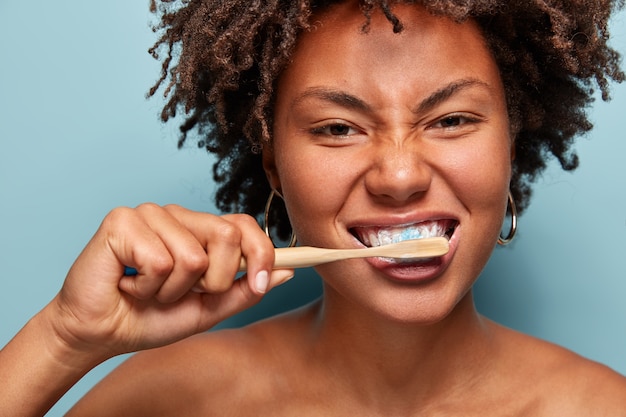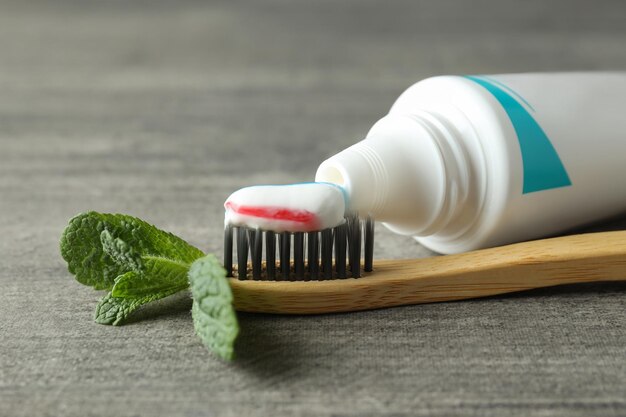Ask Ayurvedic doctor a question and get a consultation online on the problem of your concern in a free or paid mode. More than 2,000 experienced doctors work and wait for your questions on our site and help users to solve their health problems every day.
Ayurvedic Treatment for Teeth Cavities: A Holistic Guide

Tooth decay, commonly known as teeth cavities or dental caries, affects a significant percentage of the global population. According to the
In this article, we will examine how Ayurveda conceptualizes oral health, explore the potential benefits and limitations of Ayurvedic remedies, and provide practical, evidence-based tips you can incorporate into your daily routine. We will also reference contemporary research to shed light on the scientific validity of these approaches. Always remember to consult a qualified healthcare practitioner or dentist before making any changes to your oral care regimen.
Table of Contents
Understanding Teeth Cavities
Teeth cavities, or dental caries, develop when oral bacteria break down sugar and starches in food, producing acids that erode tooth enamel. Over time, the weakened enamel may form small holes (cavities). If left untreated, the decay can progress deeper into the tooth, affecting the dentin, pulp, and even the nerves.
Key Factors Leading to Cavities
-
Poor Oral Hygiene: Inadequate brushing and flossing allow plaque and bacteria to accumulate.
-
Diet High in Sugars: Frequent consumption of sugary or starchy foods boosts acid production in the mouth.
-
Lack of Fluoride: Fluoride strengthens tooth enamel, making it more resistant to acid attacks.
-
Dry Mouth: Saliva helps neutralize acids; a decreased saliva flow can hasten tooth decay.
-
Genetics: Some individuals have inherently weaker enamel, making them more susceptible.
Modern Dental Management
Conventional dental treatment for cavities may involve:
-
Fluoride Treatments: Professional fluoride therapy to reverse early decay.
-
Dental Fillings: Removing decayed material and filling the cavity with composite resin or amalgam.
-
Root Canals: Recommended when decay reaches the tooth pulp.
-
Crowns: A crown is placed over the damaged tooth for structural support and to prevent further decay.
While these interventions are highly effective, more people are seeking a holistic approach to preventing cavities, which is where Ayurvedic treatment for teeth cavities comes into focus.
Ayurvedic Perspective on Oral Health
Ayurveda, often referred to as “the science of life,” is a traditional medical system that originated in India over 3,000 years ago. It focuses on balancing the three fundamental energies or doshas: Vata, Pitta, and Kapha. Oral health, in Ayurvedic philosophy, is closely tied to the balance of these doshas, as well as one’s overall lifestyle, dietary habits, and daily routines.
Ayurvedic Concept of “Mukha Swasthya” (Oral Health)
-
Regular Oil Pulling (Gandusha/Kavala): Considered critical for removing impurities and microorganisms from the oral cavity.
-
Herbal Formulations: Ayurveda uses natural herbs like neem, clove, licorice, and triphala, believed to have antimicrobial and anti-inflammatory properties.
-
Dietary Balance: Minimizing foods that aggravate certain doshas can help maintain oral health.
-
Lifestyle Practices: Good sleep, stress management, and mindful living are seen as essential for strong teeth and gums.
From an Ayurvedic standpoint, teeth cavities may reflect an imbalance in the body’s internal environment—especially in Pitta dosha (fire element) and Kapha dosha (water and earth element). Excess acid production and bacterial activity are often correlated with an elevated Pitta, whereas stagnation or excess mucus can be linked to an aggravated Kapha.
Common Ayurvedic Treatments for Teeth Cavities
While Ayurvedic treatment for teeth cavities can include a variety of herbal remedies, dietary adjustments, and lifestyle modifications, the following therapies are among the most commonly recommended.
1. Oil Pulling (Gandusha/Kavala)
Oil pulling involves swishing a tablespoon of oil (traditionally sesame or coconut) in your mouth for 10–20 minutes, then spitting it out. Proponents claim this practice helps reduce the bacterial load in the mouth, thus lowering the risk of cavities and gum disease.
-
Sesame Oil: Rich in antioxidants, believed to have antibacterial properties.
-
Coconut Oil: Contains lauric acid, which some studies suggest may combat oral bacteria like Streptococcus mutans.
2. Herbal Tooth Powders and Pastes
Ayurvedic texts recommend various herbal tooth powders (referred to as “danta choorna”) or pastes containing:
-
Neem (Azadirachta indica): Renowned for its antimicrobial properties and widely studied for oral health.
-
Clove (Syzygium aromaticum): Contains eugenol, a compound with analgesic and antiseptic qualities.
-
Triphala: A blend of three fruits (amalaki, bibhitaki, and haritaki), which are known for their antioxidant and cleansing properties.
-
Licorice (Glycyrrhiza glabra): Exhibits anti-inflammatory benefits and is sometimes used to manage gum inflammation.
Using these herbal powders or pastes for gentle brushing and gum massage is said to strengthen the gums, reduce plaque, and alleviate sensitivity.
3. Dietary Adjustments
-
Emphasize Fruits and Vegetables: Foods high in fiber can stimulate saliva flow and help clean the teeth.
-
Minimize Sugary Snacks: Sugar feeds oral bacteria, boosting acid production and leading to cavities.
-
Stay Hydrated: Adequate water intake helps rinse away food particles and maintain saliva levels.
-
Limit Acidic Foods: Overconsumption of citrus fruits or vinegars can weaken tooth enamel.
In Ayurveda, dietary recommendations also focus on balancing your specific dosha. For instance, if you tend toward a Pitta imbalance, cooling foods (e.g., cucumber, coconut) are encouraged, whereas for Kapha, pungent or bitter foods (e.g., ginger, fenugreek) might be more suitable.
4. Herbal Mouth Rinses
Ayurvedic mouth rinses often incorporate:
-
Saltwater Gargle: A traditional remedy for mouth sores and inflammation.
-
Decoctions of Triphala: Used as a gentle antibacterial rinse.
-
Betel Leaf (Piper betle): In some regions, rinsing with betel leaf-infused water is believed to improve oral hygiene.
5. Stress Reduction Techniques
Techniques such as yoga, pranayama (breath control), and meditation play an integral role in Ayurveda. Chronic stress can weaken the immune system and indirectly affect oral health by altering salivary flow and pH levels. A holistic approach prioritizes mental well-being, which in turn supports stronger teeth and gums.
Scientific Evidence and Research Findings
While Ayurveda has been practiced for centuries, modern research is gradually validating some of its principles. Below is a snapshot of contemporary findings relevant to Ayurvedic treatment for teeth cavities:
-
Oil Pulling Studies:
-
A
2016 study in theJournal of Clinical and Diagnostic Research found that oil pulling with sesame oil led to a noticeable reduction in plaque and bacteria levels in adolescents, suggesting potential cavity prevention benefits. -
Another small-scale trial showed that coconut oil pulling might reduce Streptococcus mutans levels, although larger, more rigorous studies are needed for conclusive evidence.
-
-
Herbal Toothpastes:
-
A
2020 review published inPharmacognosy Reviews highlighted the antimicrobial potential of neem, clove, and other herbs commonly used in Ayurvedic formulations. These herbs showed promising effects against cavity-causing bacteria like Lactobacillus and Streptococcus mutans.
-
-
Triphala Efficacy:
-
A
randomized controlled trial in theJournal of Oral Biology and Craniofacial Research(2019) reported that participants using Triphala mouth rinse experienced decreased plaque formation and gingival inflammation. Although the study did not focus exclusively on cavities, improved oral hygiene could indirectly lower the risk of caries.
-
-
Clove Oil:
-
The analgesic effects of eugenol (the active ingredient in clove oil) have long been recognized in dentistry for temporary pain relief. The
American Dental Association (ADA) acknowledges clove oil as a traditional remedy but emphasizes the need for professional treatment for severe dental issues.
-
-
Balancing Perspectives:
-
Limitations: Many Ayurvedic therapies lack large-scale, high-quality clinical trials. Additionally, standardized dosing and formulation remain challenges in bridging Ayurveda with mainstream clinical practice.
-
Potential: The increasing body of research indicates that certain Ayurvedic herbs and practices (like oil pulling) may serve as complementary measures alongside conventional dental treatments.
-
Practical Tips to Incorporate Ayurveda in Daily Oral Care
-
Morning Routine:
-
Oil Pulling: After waking up, perform oil pulling with sesame or coconut oil for 10–15 minutes. Spit out the oil and rinse with warm water.
-
Tongue Scraping: Use a stainless steel or copper tongue scraper to remove bacteria and debris.
-
-
Choose Herbal Dentifrices:
-
Opt for toothpaste containing neem, clove, or other Ayurvedic herbs. Alternatively, use a mild herbal tooth powder once or twice a week to gently polish your teeth.
-
-
Balanced Diet:
-
Reduce sugary snacks, carbonated drinks, and overly acidic foods. Focus on fruits, vegetables, and whole grains.
-
Incorporate natural probiotics (yogurt or kefir) and maintain ample hydration.
-
-
Rinse Often:
-
Use a mild saltwater solution or an herbal rinse (triphala decoction) after meals to cleanse away food particles.
-
-
Stress Management:
-
Practice yoga or meditation to lower stress levels and indirectly support a healthier oral environment.
-
-
Regular Dental Checkups:
-
Even if you follow Ayurveda, routine dental visits are crucial. Early detection of cavities can prevent more invasive treatments later.
-
Frequently Asked Questions (FAQ)
1. Can Ayurvedic treatments completely cure my tooth cavities?
Answer: Ayurvedic practices such as oil pulling, herbal toothpaste, and mouth rinses may help prevent further decayand support overall oral health, but they cannot reverse deep cavities. For advanced or persistent cavities, professional dental intervention—such as fillings or root canal therapy—is essential.
2. How often should I practice oil pulling?
Answer: Many Ayurvedic practitioners recommend daily oil pulling, especially in the morning before brushing. Start with a few minutes and gradually increase to 15–20 minutes.
3. Are Ayurvedic remedies safe for children?
Answer: While mild herbal preparations (e.g., rinsing with saltwater or gentle herbal toothpastes) are generally considered safe, always consult a pediatric dentist or a qualified Ayurvedic practitioner before introducing any new regimen to children.
4. Can I use any type of oil for pulling?
Answer: Traditionally, sesame oil is used due to its warming properties in Ayurveda. Coconut oil has become popular for its pleasant taste and antimicrobial properties. Other oils are less studied, so it’s best to stick with these tried-and-true options.
5. Do I still need regular dental check-ups if I follow Ayurvedic practices?
Answer: Absolutely. Professional dental check-ups are crucial for early detection of cavities and other oral health issues. Ayurvedic remedies can be a complementary approach but shouldn’t replace standard dental care.
Disclaimer and Final Thoughts
This article is for informational purposes only and does not substitute professional medical advice or treatment. Always consult your dentist or qualified healthcare provider before making significant changes to your oral care routine. The mentioned studies and sources highlight emerging data; more extensive research is required to fully validate these Ayurvedic practices.
Call to Action
If you’ve found this comprehensive overview helpful, share it with friends who may benefit from these insights. Feel free to leave a comment or subscribe to our newsletter for more in-depth articles on natural health, holistic wellness, and scientific developments in dentistry.
Summary: Ayurvedic treatment for teeth cavities offers a holistic lens through which to view oral health. Traditional practices like oil pulling, herbal tooth powders, and balanced dietary measures can complement conventional dentistry. Emerging research shows that certain Ayurvedic herbs may combat the bacteria responsible for cavities, though further studies are needed to establish standardized guidelines. Incorporating these therapies alongside professional dental care, healthy lifestyle choices, and regular checkups could offer a balanced path to stronger, healthier teeth.




